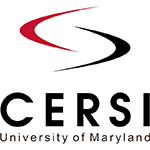Mark your calendars for Dissolution and Translational Modeling Strategies Enabling Patient-Centric Product Development, a public workshop hosted by the University of Maryland Center of Excellence in Regulatory Science and Innovation (CERSI) and the Food and Drug Administration.
About the Event:
Scheduled for May 15-17, 2017, Dissolution and Translational Modeling Strategies Enabling Patient-Centric Product Development is a multi-day public conference designed to clarify the utility of dissolution and modeling/simulation approaches, including when and how they can be used, to delineate additional tools, and to discuss novel, still evolving approaches for developing dissolution methods to:
- Facilitate formulation development and to enhance bioperformance risk management in product life cycle management.
- Demonstrate rewards and challenges with oral absorption modeling and translational biopharmaceutic PBPK tools.
- Support the development of emerging formulation and manufacturing process technologies with advanced analytical tools and control strategies.
To achieve these objectives, sufficient time will be allocated for discussion. Speakers will share key questions in advance. Key poins for discussion will include:
- Discuss case studies of the role of dissolution in product development and regulatory expectations.
- Clarify definitions, functions (roles), and relationship among biorelevant, biopredictive, clinically relevant, and discriminating dissolution/release methods.
- Discuss case studies of approaches for setting clinically relevant drug product release specifications.
- Discuss case studies of the role of modeling and simulation as a tool in the development of dissolution methods, including discriminating QC dissolution methods.
- Potential application of clinically relevant specifications in post product approval.
The workshop will be held at the University of Maryland School of Pharmacy, located at 20 N. Pine Street in Baltimore, Md.
Historical Context:
A key theme for regulatory agencies around the world is the need for patient-centric assessment of quality in a rapidly changing global pharmaceutical environment. Ensuring product quality over the course of a product's life-cycle can be challenging, especially considering evolving drug substance and drug product development approaches that are often coupled with complex supply chains.
In general, product approvals (NDAs, sNDAs, ANDAs, post-approval supplements) may be at risk or delayed due to discrepancies between the information submitted in the application and regulatory expectations. For new submissions, design spaces developed using poorly developed dissolution methods and/or acceptance criteria that do not meet the regulatory expectations may lead to significant changes including tighter than expected control spaces, or even withdrawal of the submission document. On the other hand, many drug products today, especially those designed for break through designation, are often developed at an unprecedented speed. This allows patients' access to medications faster, but often at the expense of process understanding typical for normal products, requiring additional post-approval process optimization. Efficient implementation of post-approval process changes may be unnecessarily complicated if key product performance understanding and adequate quality controls are not in place at initial filing.
Since dissolution testing is a key enabler of product development and often a key issue and requirement to justify certain process and formulation changes, effective strategies for in vitro dissolution method development and establishment of corresponding acceptance criteria to ensure product quality are needed through a drug product's life cycle.
Recent advances in formulation and manufacturing technologies, evolving regulatory expectations, as well as novel dissolution approaches have resulted in inconsistencies in dissolution terminology, limitations of the current regulatory frame work, and how to effectively implement in-vitro and in-silico approaches to advance product understanding. Finally, with the emergence of oral absorption and PBPK modeling approaches, the need for biorelevant/biopredictive dissolution data becomes critical. In-silico modeling is rapidly evolving into a powerful tool leading to enhanced overall product understanding and in the support of dissolution method development and specification setting.
About the Organizer:
 |
A collaborative partnership between the University of Maryland, College Park and the University of Maryland, Baltimore, with support from the Food and Drug Administration (FDA), the University of Maryland Center of Excellence in Regulatory Science and Innovation (M-CERSI) focuses on modernizing and improving the ways drugs and medical devices are reviewed and evaluated. |
For More Information:
More information about this conference, including registration, an agenda, and parking and accommodations, is available on this website.
